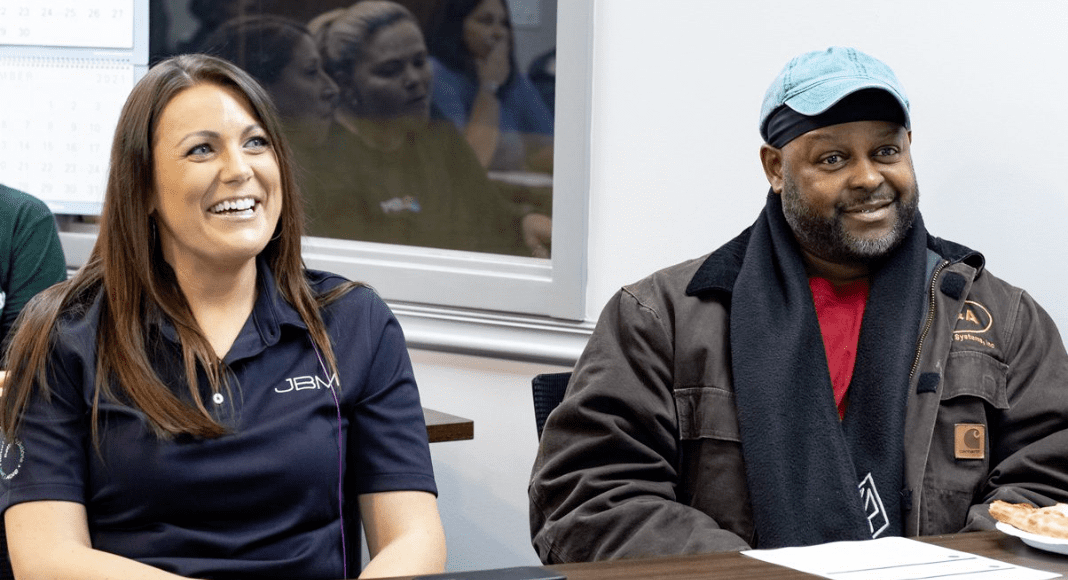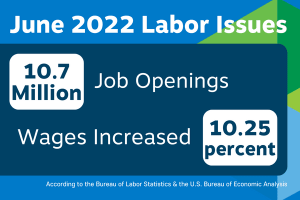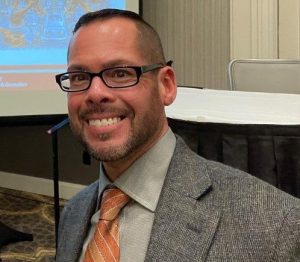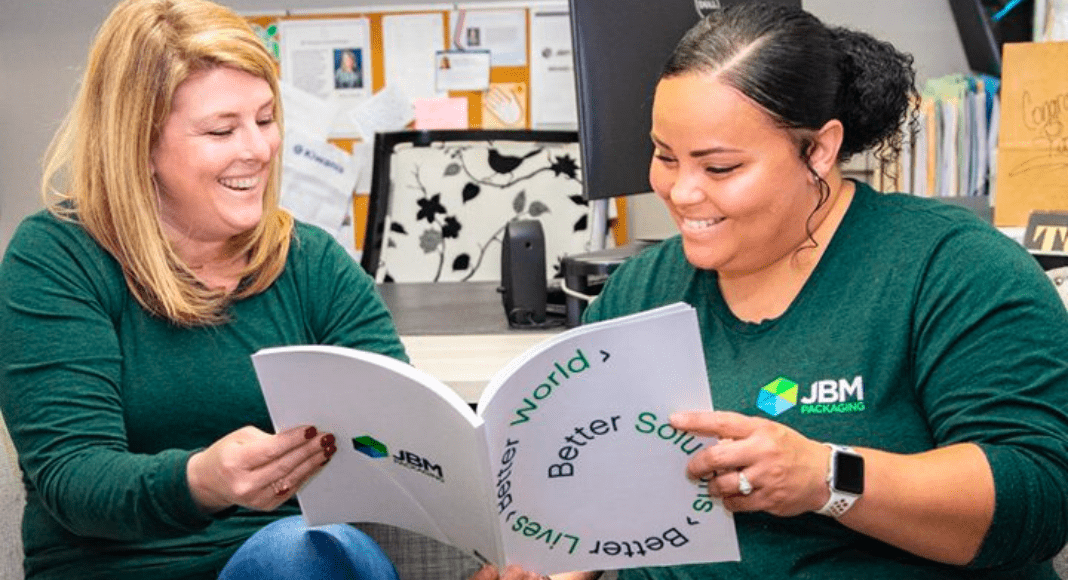7 Things to Consider When Starting a Second Chance Program

If you’re familiar with JBM, you know that our company is passionate about creating better solutions, better lives, and a better world. We are continually looking for ways to further impact the lives in our community in a deeper and more lasting way. Core to our business is our second chance (or reentry) program, known as “Fair Chance Program” within JBM, which provides career opportunities for people who have experienced incarceration. We have learned a lot in the past five years about what works – and what doesn’t work – when it comes to creating an environment where second chance employees can thrive. With the hope of getting you successfully started on your journey, here are 7 things to consider before starting a fair chance program within your own business.
HOW OUR FAIR CHANCE PROGRAM BEGAN
Around 2016 with changes in the labor market, we identified a way to keep our business model sustainable while simultaneously driving our purpose. Marcus Sheanshang, JBM’s owner and CEO, visited Cincinnati-based Nehemiah Manufacturing and saw how a fair chance program was not just a viable strategy to build production capacity. According to Marcus, “I viewed it as that, in addition to providing JBM and me personally the ability to play a transformational role in the lives of our team members in a more profound way than we had in the past. Now, I don’t know where we’d be today without our Fair Chance hires.”
 If you’re feeling the strains of the labor market like so many others, and you want to remain purpose-driven, a fair chance program is a sustainable business model to align those two critical needs. Valerie Plis, our Director of Human Capital & Culture, shares, “While talent is everywhere, opportunity is not. JBM is committed to providing individuals a second chance to a better future, starting with a job that offers a competitive compensation package, an engaging culture and community, and a career path for ongoing growth and development.”
If you’re feeling the strains of the labor market like so many others, and you want to remain purpose-driven, a fair chance program is a sustainable business model to align those two critical needs. Valerie Plis, our Director of Human Capital & Culture, shares, “While talent is everywhere, opportunity is not. JBM is committed to providing individuals a second chance to a better future, starting with a job that offers a competitive compensation package, an engaging culture and community, and a career path for ongoing growth and development.”
“We chose to call our initiative the ’Fair Chance Program’, because it signified mutual respect and equal footing, which is what the program is all about. None of us is better than the other. We are all just working together and coming alongside one another to be better each day than we were the day before.” – Allison Steele, JBM Better Lives Coach and Learning & Development Specialist
DEVELOPING A MODEL OF SUCCESS
Our company and our friends at Nehemiah Manufacturing were part of a research group with other businesses with fair chance programs for Jeffrey Korzenik’s book Untapped Talent. He notes in his book that there is a “right” and a “wrong” way to approach second chance hiring, or, as he calls it, “a model of success.” He identifies what doesn’t work in chapter four, “Success Is Not Random.”
The model that does work, he calls “The True Second Chance Model.”
“The True Second Chance Model is the distillation of the wisdom and experience of businesses that have succeeded in creating hiring processes for people with criminal records, as well as those marginalized by homelessness, addiction, and other social ills. The result of this model is that, relative to the overall workforce, the quality of these second chance hires ‘skews right’—in other words, this model creates a disproportionate number of above-average workers.” – Jeffrey Korzenik
7 CONSIDERATIONS TO KEEP IN MIND
What are some of the key ingredients that make our program effective? Here are seven things we’d encourage anyone considering a fair chance program to keep in mind:
1: You Need Leadership Support. Without the full support of key leaders throughout all areas within your organization, a fair chance program will be transactional rather than transformational. And while it might sound like hyperbole, your own version of our Fair Chance Program has the potential to truly transform your company’s culture and purpose. But, accomplishing that requires the collective engagement and support of key stakeholders throughout the business—from human resources to operations and executives at the top. Their support needs to be demonstrated from the very start.
2: Your Goals Will Drive the Strategy. Before beginning your program, set clear objectives and goals for short- and long-term growth. How many people do you want to hire (and change their lives) through this program? What are some of the key performance indicators for success—do you want to grow production by X percent or achieve a specific retention rate? What benchmarks will you follow that will help you set the goals? This will help you define your approach and strategy for building your program.
3: It Requires an Investment. As Korzenik notes, “Many people in need of a second chance, particularly those coming from incarceration or otherwise exiled from work… they need more. It is not enough that they are ready and willing to work; they may need additional tools and accommodations to maintain employment.” In our experience, providing accommodations, such as support and assistance securing reliable transportation and safe housing, have enabled us to deliver on our goal of creating better lives. However, these accommodations also require both time and money to resource.
4: Know Whom You Want to Hire. Finding the right people is key to developing a successful program. A big part of this is deciding the types of people you want to hire, including taking into consideration the types of crimes they’ve been charged with committing. Almost half of the people in prison (45 percent) are incarcerated due to drug-related convictions, yet theft and illegal possession of weapons are also leading offenses. We’ve made the decision to not hire those who have committed crimes against women and children. In addition, we choose to evaluate violent crimes on a case-by-case basis. The profile you will include in your program is an important decision that only you and your team can make.
5: Find Local Support Partners. Resources will vary based on the community in which your business operates, but identifying non-profit partners is a critical step in building your fair chance program. From larger organizations like Goodwill and Salvation Army to smaller local organizations like CityLink or Wheels Inc. located in our hometown of Greater Cincinnati, partners can provide a range of services to help support your second chance team members. These services can include assistance with vehicles for transportation, short-term housing and access to furniture, financial literacy training, childcare services, and financial assistance.
6: Support Team Members Internally. From coaching support to career training, creating a framework that supports the development of traditional employees and second chance hires alike can help position everyone for success. At JBM, we have full-time better lives coaches on staff who are available to assist all of our team members with things like mentorship and personal goal setting. Ultimately, we believe that when employees are encouraged to become the best version of themselves, they will strive to perform at their best.
One of our favorite success stories to arise from our Fair Chance Program is that of Brian Frawley, a team member who has climbed the ranks to Supervisor:

Brian Frawley, JBM Supervisor
“After the judge sentenced me to four years in prison, I thought my life was over. Three years into my sentence, I was released to a halfway house on good behavior, but I had nothing beyond my job at JBM Packaging as an operator. I was released after four months, and with the resources made available to me through JBM, I was able to get an apartment, a car, and a bed to sleep on. With hard work, determination, strong work ethic, and goals I set for myself through weekly meetings with my life coach, I continued to prove myself. Within a year-and-a-half, I had been promoted to Supervisor. I thank JBM for giving me a chance – for believing in me when no one else did, not even myself. JBM offers all the tools a Fair Chance team member needs to succeed and grow. Then, it’s up to you.”
7: Develop Methods for Recognition. When team members experience milestones in their employment, sobriety journeys, or at other significant events in their lives, it’s important to take the time to celebrate them. As other team members step up to assist, show appreciation for their support. Taking time to recognize the people and efforts that have contributed to a successful program will help contribute to its long-term success. Read here about our 2022 Fair Chance Program Graduation Celebration!
BENEFITS OF OUR FAIR CHANCE PROGRAM
Our Fair Chance Program has turned into so much more than we initially hoped for. Not everyone we hire stays with the company long-term, but we have found many team members who continue to grow and seize the opportunities placed before them. We’ve found that it gives our work meaning, because it’s not just about the individuals we hire—it’s about their families and the people who live in their communities.
Further, our Fair Chance Program has translated into sales, allowing us to meet production demands during a time when worker shortages are rampant. It’s reduced the burden on other team members, reducing and better controlling unwanted overtime. The additional revenue our second chance team members have helped generate has allowed us to open an additional facility and increase the potential of this program’s growth exponentially, meaning we can give more individuals an opportunity they might not otherwise receive.
Lastly, it has helped us all grow and become better as we realize that people who experience incarceration are not the sum of the mistakes they’ve made in their past. Our society attaches a stigma to incarceration, but ultimately, we’ve found that all of our Fair Chance Program team members deserve the opportunity to create a meaningful life after incarceration.
If you’re interested in learning more about some of the building blocks to creating a successful program like our Fair Chance Program, please contact us today. We’d love the opportunity to consult with you and your company on next steps.







